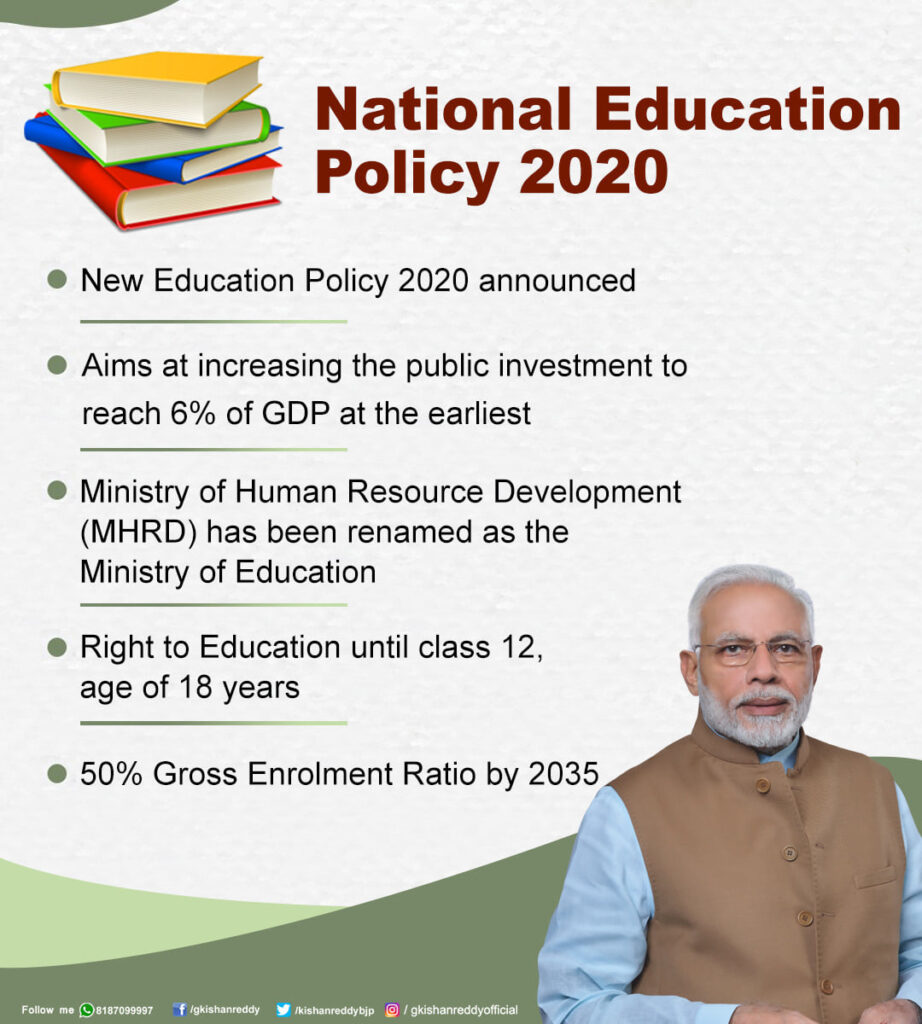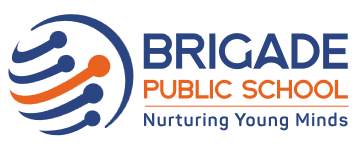National Education Policy 2020 (NEP 2020)
Introduction
The National Education Policy 2020 (NEP 2020) is a landmark policy introduced by the Government of India to transform the education system. It aims to provide holistic, flexible, and multidisciplinary education with an emphasis on skill development and experiential learning. NEP 2020 replaces the previous education policy of 1986 and sets the vision for a new, progressive, and modern education framework.
Key Highlights of NEP 2020
1. School Education Reforms
-
Introduction of a 5+3+3+4 structure, replacing the old 10+2 system:
Foundation Stage: 3 years of pre-primary + Classes 1 & 2 (ages 3-8)
Preparatory Stage: Classes 3 to 5 (ages 8-11)
Middle Stage: Classes 6 to 8 (ages 11-14)
Secondary Stage: Classes 9 to 12 (ages 14-18) - Emphasis on Early Childhood Care & Education (ECCE).
- Multilingualism: Mother tongue/regional language as a medium of instruction up to Grade 5.
- Reduction of curriculum load to focus on core concepts.
- Introduction of experiential learning through art, sports, storytelling, and hands-on activities.

2. Holistic and Multidisciplinary Learning
- Integration of coding, vocational education, and internships from an early age.
- No strict separation between arts, science, and commerce—students can choose subjects across streams
- Focus on critical thinking, problem-solving, and creativity.
- Report cards to be more comprehensive, including skills, values, and extracurricular performance.
3. Assessment & Examination Reforms
- Shift from rote learning to competency-based assessment
- Board exams to become easier and more application-based.
- School report cards will include self-assessment and peer feedback.
4. Technology Integration in Education
- Introduction of Digital Learning and Virtual Labs.
- Emphasis on AI, coding, and modern technologies.
- Use of e-learning platforms like DIKSHA, SWAYAM, and e-pathshala.
5. Teacher Training & Development
- Mandatory teacher training programs to improve teaching quality.
- Use of latest teaching techniques and digital tools.
- Performance-based promotions and continuous professional development.
6. Higher Education & Skill Development
- Flexible entry and exit options in college education.
- Introduction of a four-year multidisciplinary undergraduate program.
- Establishment of Academic Bank of Credits (ABC) for credit transfer.
- More focus on vocational training and skill-based courses.
7. Focus on Inclusive & Equitable Education
- Special attention to students from disadvantaged backgrounds
- Emphasis on gender inclusion, differently-abled students, and rural education.
- Scholarships and financial support for underprivileged students.
Our School’s Implementation of NEP 2020
At Brigade public school , we have adopted several key aspects of the NEP 2020 to enhance the learning experience for our students:
✅ Activity-based learning and skill development programs.
✅ Multidisciplinary subject choices and flexible learning paths.
✅ Technology-driven classrooms with digital learning tools.
✅ Holistic assessments focusing on conceptual understanding.
✅ Emphasis on regional languages and multilingual learning.
Conclusion
The NEP 2020 is a revolutionary step towards a modern and inclusive education system in India. At Brigade public school, we are committed to implementing its principles to create a better, more innovative, and student-centered learning environment.
